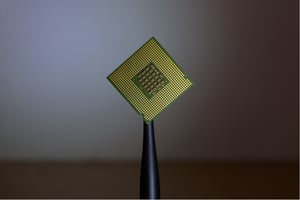Leonardo Da Vinci wasn’t born one of the greatest artists in history. His transcendent skills as a...
7 Focus Areas for Improving Engineering Creativity
There has never been a greater need for creativity in the workplace. Technology is advancing at an exponential rate, but the difficulty of problems is also growing. Individuals who can think abstractly and solve difficult problems are rare and valuable. In many businesses, competitive advantages are not found in equipment and capital but in the creative minds of their teams. Creativity is the new barrier to entry into any competitive market.
Improving creativity in individuals is a worthwhile investment. It takes effort, but it is not impossible to move an individual from an average level of thinking, creativity and production to an elite level of thinking. And the science tells us that improving creativity not only enhances the productivity of work related endeavors, it can enhance an individual’s overall life. People who are able to think deeply and creatively for long periods of time, experience what Mihaly Csikszentmihalyi termed “flow,” in his aptly titled book, Flow: The Psychology of Optimal Experience.
Imagine a mechanic preparing a racecar for its next race. The engine will be optimized to the right combination of acceleration and top speed. The tires will be specially selected to optimize performance on the surface of the track and the weather conditions. And the fuel will be carefully formulated to optimize the burn rate in the engine. Nothing that effects the car’s performance ability is left to chance. But a fast car is not enough to win a race. The car needs a driver with the skills and experience to put the car to its best use. The car and driver must complement one another to run the fastest race possible.
Creativity is not a fixed trait like your height or eye color. It can be improved. By performing proper brain maintenance, its functioning improves which also improves its ability to create insights and find innovative solutions to even the most difficult of problems. As an example, think of a time when the brain was not well cared for and didn’t perform well, such as after a night of heavy drinking before a big test in school. Hang overs do not improve test results. Focused and prolonged studying, good nutrition and sleep improve results.
And by understanding how the brain works, an individual can learn to leverage the brain in the most optimal way that is in line with how thinking takes place. They can improve their brain performance by understanding how the process of thinking works. The brain requires proper care and preparation for the ‘race’ at hand and the skill with which a brain is ‘driven’ will determine its results.
It may be helpful to think of creativity as a process that occurs over time rather than an innate trait. Think of your brain as a muscle. Supply it with the right amount of exercise, oxygen and nutrients and it will grow and improve its function. It will be able to perform longer and better than if it was neglected.
There are three brain care areas—maintenance, diet and exercise and four brain skill areas—focus, relaxation, subconscious thinking and work that effect creative performance. Paying careful attention to and improving all seven areas even in an incremental way can improve creative output and work satisfaction.




